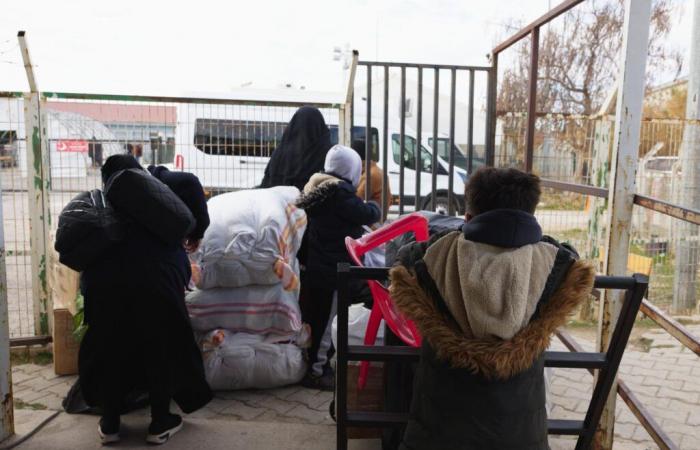Since the fall of Bashar Al-Assad's regime, driving along Turkey's southern border by car is like inviting yourself without knocking into deep Syria, that of ordinary people, precarious workers, families. modest and young singles in search of a better future. All those who, over the last thirteen years, since the outbreak of the Syrian civil war and its ferocious repression, have fled their country to settle with more or less happiness in their Turkish neighbor and who have decided, today today, to return home, as quickly as possible, bags full of belongings in hand.
They are there by the hundreds, gathered in front of the border posts of Oncüpinar, Cilvegözü and Yayladagi, which lead to Aleppo, Idlib and Latakia. With bright but tired eyes, they wait in front of the mobile offices of Turkish migration service agents, dispatched for the occasion, supervised by the gendarmes and a few NGOs who have come to distribute warm clothes and tea. After registering their fingerprints and obtaining the green light from the Ankara tax services, they must sign a so-called “voluntary return” sheet. A document which records their definitive departure from Turkey.
Sitting on a blanket, in front of a bundled television screen, her 9-year-old son at her side, Racha, who only gave her first name, like other people she met, has her gaze lost in the vagueness. Her husband is further away, somewhere in the queue at the Cilvegözü post, the busiest of the three crossing points in recent days, with between 500 and 1,000 daily departures. Racha says she is just impatient to cross to the other side in order to return for the first time in ten years to her city of Aleppo, which she left during the bombardment of the regime forces. She had just turned 19. His house was destroyed. “Relatives are rebuilding it”relate-t-elle.
You have 74.22% of this article left to read. The rest is reserved for subscribers.






